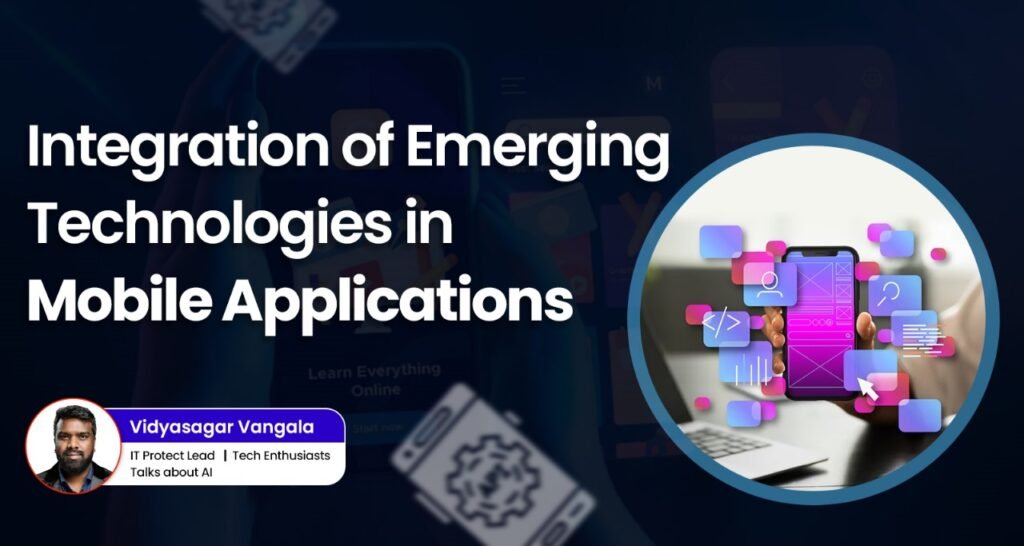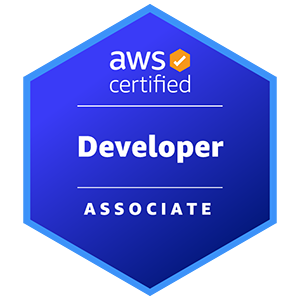
The mobile application landscape is evolving rapidly, driven by the integration of emerging technologies that enhance user experiences, streamline operations, and foster innovation. As mobile devices become central to daily life, developers are leveraging advanced technologies such as artificial intelligence (AI), machine learning (ML), blockchain, the Internet of Things (IoT), augmented reality (AR), virtual reality (VR), and cloud computing to create sophisticated applications that meet the demands of modern users. This article provides a comprehensive analysis of these technologies and their impact on mobile application development.
The Current State of Mobile Applications
Mobile applications have become an integral part of our lives, offering solutions for communication, entertainment, shopping, education, and more. With over 3 billion smartphone users worldwide, the demand for innovative and user-friendly applications continues to grow. According to recent studies, the global mobile application market is projected to reach approximately $614.40 billion by 2026, underscoring the importance of staying ahead in this competitive landscape.
Key Emerging Technologies in Mobile App Development
1. Artificial Intelligence and Machine Learning
AI and ML are at the forefront of transforming mobile applications by enabling them to learn from user behavior and preferences. These technologies allow developers to create intelligent applications that can offer personalized experiences through features such as:
- Predictive Analytics: By analyzing user data, apps can predict future behavior and provide tailored recommendations. For instance, streaming services like Netflix use predictive analytics to suggest content based on viewing history.
- Natural Language Processing (NLP): NLP enables applications to understand and respond to user queries in natural language, enhancing user interaction through chatbots and virtual assistants.
- Image Recognition: AI-powered image recognition allows apps to identify objects or people in images, which can be used in various applications from social media filters to security systems.
2. Blockchain Technology
Blockchain technology is revolutionizing mobile app development by providing enhanced security and transparency. Its decentralized nature ensures that data is stored across multiple nodes, making it more secure against breaches. Key applications include:
- Secure Transactions: Blockchain can facilitate secure payment processing within mobile apps without the need for intermediaries.
- Decentralized Applications (DApps): Developers can create DApps that operate on a blockchain network, ensuring data integrity and user control over personal information.
- Smart Contracts: These self-executing contracts with terms directly written into code allow for automated transactions when conditions are met.
3. Internet of Things (IoT)
The IoT connects physical devices to the internet, enabling them to communicate and share data. Mobile apps can leverage IoT capabilities to enhance functionality in various sectors:
- Smart Home Applications: Users can control home appliances remotely through mobile apps, improving convenience and energy efficiency.
- Wearable Technology: Fitness trackers and smartwatches collect health data that can be analyzed through companion mobile applications for personalized health insights.
- Industrial IoT: Mobile apps can monitor machinery performance in real-time, allowing for predictive maintenance and reducing downtime.
4. Augmented Reality (AR) and Virtual Reality (VR)
AR and VR technologies are transforming how users interact with mobile applications by creating immersive experiences:
- AR Applications: Apps like IKEA Place allow users to visualize furniture in their homes before making a purchase, enhancing the shopping experience.
- VR Experiences: VR gaming apps provide users with fully immersive environments that simulate real-world experiences, appealing to entertainment enthusiasts.
5. Cloud Computing
Cloud computing enables mobile applications to store data remotely rather than on local devices, offering several advantages:
- Scalability: Developers can easily scale applications based on demand without worrying about hardware limitations.
- Cost Efficiency: Cloud solutions reduce the need for extensive infrastructure investments while providing access to powerful computing resources.
- Cross-Platform Accessibility: Users can access cloud-based apps from any device with an internet connection, enhancing flexibility.
6. 5G Technology
The rollout of 5G networks is set to revolutionize mobile app development by providing faster speeds, lower latency, and improved connectivity. Key benefits include:
- Enhanced User Experience: Users will experience smoother streaming services, quicker downloads, and real-time interactions in gaming.
- IoT Integration: With higher bandwidth capabilities, 5G supports more connected devices simultaneously, paving the way for advanced IoT applications.
- Augmented Experiences: The combination of AR/VR with 5G will deliver richer interactive experiences without lag.
Challenges in Integrating Emerging Technologies
While integrating emerging technologies offers numerous benefits for mobile application development, several challenges must be addressed:
- Security Concerns: As apps become more complex with integrated technologies like AI and blockchain, ensuring robust security measures is crucial to protect user data from cyber threats.
- User Resistance: Some users may be hesitant to adopt new technologies due to unfamiliarity or concerns about privacy and data ownership.
- Development Costs: Implementing advanced technologies often requires significant investment in development resources and training for developers.
- Interoperability Issues: Ensuring that new technologies work seamlessly with existing systems can pose technical challenges.
Future Trends in Mobile Application Development
As technology continues to evolve, several trends are expected to shape the future of mobile application development:
- Low-Code/No-Code Development Platforms: These platforms enable developers with minimal coding experience to create applications quickly using visual interfaces. This democratizes app development and accelerates time-to-market.
- Voice User Interfaces (VUIs): The rise of voice assistants like Siri and Alexa has led to increased demand for VUIs in mobile apps. This trend enhances accessibility and provides a hands-free alternative for users.
- Personalization Through AI: As AI technology advances, personalization will become even more sophisticated. Apps will leverage deep learning algorithms to deliver hyper-personalized content based on individual user behavior.
- Sustainability Initiatives: With growing awareness around environmental issues, developers are expected to focus on creating energy-efficient applications that minimize resource consumption.
Conclusion
The integration of emerging technologies in mobile applications is reshaping how users interact with their devices while opening new avenues for innovation within the industry. By harnessing the power of AI, blockchain, IoT, AR/VR, cloud computing, and 5G technology, developers can create cutting-edge applications that enhance user experiences while addressing operational challenges.
As we move forward into a future where technology continues to advance at an unprecedented pace, it is crucial for developers and businesses alike to stay informed about these trends and embrace them strategically. By doing so, they will not only meet but exceed user expectations while positioning themselves favorably within an increasingly competitive market.
The ongoing evolution of mobile app development is exciting; it presents endless possibilities for creating solutions that improve daily life while driving business growth across various sectors. Embracing these emerging technologies will be key for organizations aiming to thrive in this dynamic environment as they seek innovative ways to engage users and deliver value through their mobile applications.
Vidyasagar Vangala is an accomplished IT Project Lead with 10 + years of IT industry experience with a deep passion for technology and innovation. With extensive expertise in Cloud Technologies, AI Integration, and Automation, Vidyasagar has been at the forefront of driving transformative projects that deliver tangible business outcomes. His robust experience in DevOps engineering, cloud platforms like AWS and Azure, and Kubernetes showcases his ability to lead large-scale cloud migrations, develop AI-powered solutions, and implement advanced automation frameworks.
A strategic thinker and problem solver, Vidyasagar thrives on tackling complex challenges and delivering scalable, efficient solutions. His professional journey reflects a commitment to leveraging cutting-edge tools and methodologies to help organizations achieve agility and operational excellence. Whether it’s streamlining processes through DevOps practices or integrating AI to enhance business decision-making, Vidyasagar’s innovative mindset and leadership have consistently resulted in successful project deliveries.








